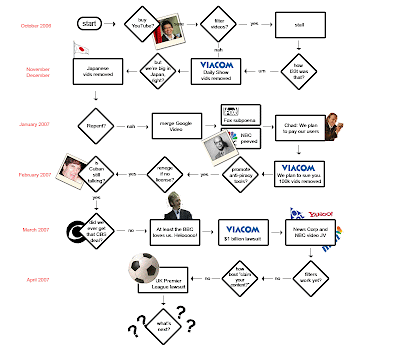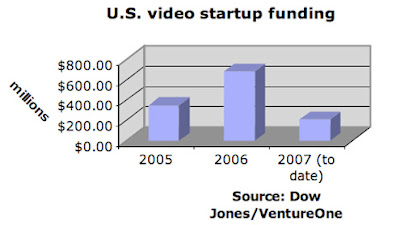
Eyespot, the online community for video mashups, has partnered with Audible Magic to offer copyrighted music content to be available to users for remixing.
Eyespot is hoping that this deal, with the digital protection of Audible Magic, will entice media companies to offer up their content for Eyespot users. This of course is an attempt to create a middle ground for users and media companies, circumventing the kind of woes that
YouTube has racked up. Using Audible Magic’s content recognition solution with the Eyespot platform allows music to be legally available for remixing. As music scoring is very popular with the Eyespot community, this partnership with Audible Magic protects everyone involved, especially the record holders, who get to decide what songs will be available for mixing. This is good for promotional material as well.
Eyespot will also be giving administrative moderation tools to copyright holders, to filter out any inappropriate media before mashups are available to the larger community for sharing and embedding. This should alleviate some of the issues many big brand companies have had in the past with contests that put their name on the line by opening it up to the UGC crowd. Eyespot already has several media partners including Paramount Pictures, the NBA, and Jive Records, among others.
Audible Magic has become a popular choice for several companies as their anti-piracy services protect copyright holders in the face of massive media sharing. Some of their clients include
MySpace,
Grouper and
Viacom. Audible Magic’s corporate partners include EMI, Sony/BMG and Warner Music Group, among others.





